Christian rocker Trey Pearson: Coming out has been “the most freeing, liberating, amazing thing”
Trey Pearson shed his conservative Evangelical life to live his truth as a powerful, passionate LGBTQ pop artist.

Trey Pearson lays it on thick with “Love Is Love.” The rousing song sounds exactly like the kind of euphoric, affirming anthem you’d expect from someone who just came bolting out of the closet after decades lying in wait.
“I’ve had a lot of firsts over this last year, which has been amazing,” he says. “And to get to go there, of that kind of honesty even in my records, feels fantastic.”
It’s certainly a new sensation for the 37-year-old, who until last year was the leader of Everyday Sunday, a popular and longstanding contemporary Christian rock group. The singer-songwriter had long suppressed his sexuality to the self-deluding extreme. “I did not accept to myself that I was gay,” he says. “I never thought of myself that way, even though that’s what I thought about. And I think that was always there.”
In June of 2016, Pearson finally decided to live out his truth.
“Accepting myself and coming out has been by far the most freeing, liberating, amazing thing that’s ever happened to me,” he says, adding soberly, “but it hasn’t been without loss.” He covers a spectrum of emotions he encountered on his coming out journey on his passionate and strong debut solo album Love Is Love. “When I came to this place where I finally decided to get help and then finally accepted myself for the first time, an overwhelming amount of emotions that had been suppressed my entire life just kind of all came out at once…. I feel like there are these things that I’ve been needing to say for a long time that I finally was able to put words to.”
In addition to the expected songs of freedom and liberation, the seven-song EP features tracks, including the tender “Silver Horizon,” that touch on the sadness and regret that can also result from coming out later in life.
“‘Silver Horizon’ was one of the first songs I wrote as I started to get into a healthier place [with coming out],” Pearson says. “It’s very much about having to go through the darkness — whenever you’re changing seasons in life, it’s sort of like you can’t get around the pain or the grief or any of it. You have to go through it. And to me, ‘Silver Horizon’ is that light on the other side of that.”
Another compelling song, “Don’t Dance,” is a kind of dare to those erstwhile Everyday Sunday fans who refuse to get on board now that he’s an out solo artist — some even going so far as to boycott him, as the employees of a California Christian music festival did last year.
“There’s almost this sort of righteous anger that I feel towards people that can’t love me for who I am and feel the need to judge me or think something’s wrong with me,” Pearson says. Rather than pout, he’s disarmingly turning the other cheek. “If you think I’m going to hell, don’t dance to my music,” he sings on the breezy mid-tempo number.
Since coming out, the recently divorced father of two toddlers has cultivated a new circle of fans and friends in his hometown of Columbus, Ohio. Next year, he’ll round up more fans across the country on a 30-city tour, one he assures will include Washington, D.C.
Many members of his new posse are featured in the video for “Love Is Love.” “It’s really celebrating the LGBTQ spaces that I have found a refuge in over this last year and a half. It feels wonderful to be part of such a loving community.”

METRO WEEKLY: Let’s start from the beginning: How did religion shape your upbringing?
TREY PEARSON: I grew up in a small town outside of Columbus, Ohio. I was very influenced by a lot of Evangelical Christian culture. I was surrounded by that growing up, coming from a super conservative Christian family. I was very much taught that it was a sin to be gay, and that God hated that, and that nobody’s made that way. We were taught that you had a choice, that you could choose to be straight or gay. That’s put in your head from a young age, brainwashing you to think it’s God’s way, and that God will be angry if you choose to be gay. As adolescence kicks in, you have some of those feelings and attractions that you feel deep shame about. So I would try to pray it away, beg God to take that from me, to help me not to be that way.
Looking back, over these last couple years, it’s been a lot to process of why I made decisions that I did, but I realize that I was very much a product of my upbringing. I had put all my faith into believing that I could be something that I wasn’t — straight. I had never even made out with a girl before I got married.
And in that Evangelical Christian culture, that purity culture, you’re supposed to save yourself for marriage. You’re not supposed to have sex before you get married. So it was very easy for me to not be tempted to have sex with my girlfriend or to even make out or do anything, because I just didn’t want to. But I also had this nervousness deep down. I just desperately wanted to know what it felt like to be in love. And when you have things in your head in the wrong categories, I didn’t know how to process any of that. I never wanted to fall in love with any of my guy friends because I thought that was horrible, and I desperately wanted to fall in love with these girls. And when all you have is your own experience to base it off of, you think, “Well, maybe this is normal for a lot of people.”
So I ended up eventually finding this girl that I did love. I loved her as a human being. I loved hanging out with her. She was a great person. I thought, “I could totally raise kids with this kind of person, and I enjoy her. We never fight.” It was, “Well, maybe this is what it’s supposed to feel like. Maybe it’ll all just naturally work. Maybe it’ll all just naturally come on my wedding night.” So I asked her to marry me, and we got married.
And then that first night, that first week, all of a sudden I realized very quickly how difficult it was going to actually be. And honestly, even where my mind would have to go to try to make it work, which I still failed at half the time. It was torturous. It was torturous for me. I’m quite sure it was torturous for her. And it was one of those things that was so taboo, that we just couldn’t talk about it for a long time. We just kept hoping it would get better. We tried for years. We had two kids. And, after a lot of years of this torturous place of not being able to be what each other needed, we finally came to a place where I decided to get help. It just took a long time to accept.
During that time, I definitely progressed in my own faith a lot, my own beliefs. And came to a point shortly into my marriage where I think I was able to accept other people for who they are. And I realized that it’s probably not a choice. And I think a part of that was recognizing my own feelings, and a part of it was just progressing and changing even how I understood the Bible and how I understood God and what I believed about that. But at that point, I was married, I had a kid, and I thought, “Well, I still can’t be gay.” It still didn’t feel like an option. I just felt like I had to do whatever it took to be the best husband I could be, to be the best dad I could be.
It took a long time to accept that I was never going to be able to be who she needed me to be. And also a long time to understand that my kids needed a dad who was able to be his best self, so they can be their best selves. It was definitely a long journey to get to that point.
MW: Who was the first person you came out to?
PEARSON: I called this pastor friend of mine who I knew was affirming. And for the first time aloud ever in my entire life, I said to somebody, “I think I might be gay.” And when I said that, I just bawled and lost it because it was this thing I had suppressed and had not been able to admit my entire life.

MW: How did you evolve in your faith in regards to homosexuality? How did you reconcile what you had been taught with your own acceptance of others who were gay?
PEARSON: I think there are a lot of factors that go into it. But for anybody that’s grown up in the Protestant church, most believe that you have the free will to choose to love God or believe in God and follow God. I actually grew up in a different kind of denomination — they call themselves non-denominational — and the Calvinist idea that you’re predestined, that you’re chosen, and if you’re one of God’s children, you’ve been predestined to be. Otherwise you’re predestined to be one of the devil’s children, I guess, and you’re predestined to go to hell. It’s this very weird idea about God, but it’s just one that I grew up with and was taught as normal. It took a long time to unlearn that. It was this thing I had to wrestle with even as a teenager — “Oh my gosh, do I get to choose to believe in God, or am I predestined?”
I think I’ve always been challenging myself in why I believe what I believe. And to be honest, a lot of times I put my whole heart into my beliefs until they don’t work anymore. And I think part of putting everything into it is to prove whether it is actually true or not. I was a teenager that had read the Bible front to back, Genesis to Revelations, six times. I had memorized the book of James. I was part of Bible Bowl, where we would get quizzed on Bible verses. It was just always a thing that mattered to me a lot, that I really wanted to understand. And then all of a sudden, after my first year of college, I started this deal with this huge Christian record label and would go on tour all over the world — all 50 states and 20 countries. And any time you start to see the world like that — or me, being in a Christian band who’s played at literally thousands of churches and been a part of all these different events, you realize all these people believe a lot of the same things, but a lot of them believe really different things.
I think anybody that ever gets to travel the world, it shapes you, and it helps challenge you about things that you might have grown up thinking. So I think part of my progression was just seeing the world. I think it was seeing really different beliefs, and sort of desiring to know why people believe the way they do and why people believe different things.
As I started touring, Rob Bell wrote this book called Velvet Elvis: Repainting The Christian Faith, and that book rocked my world in a lot of ways, and it kept rocking my world. Bell is my favorite author and eventually became a friend of mine and a mentor to me. And he was a huge help to me as I did come out and was going through all of this. He challenged me as a young adult in my own beliefs, in my own assumptions about what I thought about the Bible and God and how it worked.
I stopped seeing the Bible the way that I had growing up. Even though my faith was still very important to me, there were things that didn’t make sense the same way that they did before, like the fact that “homosexual” wasn’t even a word until the late 1800s, yet it’s in my Bible from 2,000 years ago. Why is that? Then, “Oh, well, it didn’t actually say ‘homosexual’ in the original translation,” and it could’ve meant several other things, and they didn’t see things in their culture the way we see them now. And then there are things that we just have gotten past that are in the Bible — slavery or women’s rights or genocide, killing people in the name of God. I think putting your faith in Jesus and in the mystery of God is one thing, but putting your faith in believing that God wrote every single word of the Bible, and there’s no error in it, that’s a whole different thing to put your faith in. That’s not something that Jesus even ever asked you to put your faith in when reading the Bible. But when you realize that that’s a huge part of the assumptions that we have in our 21st century western Evangelical Christian culture, those were the kinds of things that I started to get really challenged on in my own life. I thought, “Man, it was just 150 years ago when all of sudden it was, ‘Are we sure God is okay with slavery?'” That was a big thing for not only Christians to work through, but for humanity to work through.
I think being queer is one of the big things that we’re working through now, and humanity has already started to work through it.
MW: How do you identify now in terms of religion? Do you belong to a particular church?
PEARSON: I do go to a church. Actually, I go to a couple of different ones. But I still identify as a Christian. I think I am one of the more progressive, liberal Christians you’ll meet, but there are actually a lot more people like that out there than a lot of people realize because, unfortunately, what you see about Christianity in America today tends to scream from the fundamentalist side. But when you also realize that most of the country identifies as Christian, but most people don’t identify as the fundamentalist, Evangelical, church-going kind of Christian, you realize, “Wow, the world’s not quite like they made it seem growing up, and those aren’t just a bunch of lukewarm people that don’t care about God. They just don’t think about it quite like you do.”
I definitely embrace the mystery of the unknown, and I don’t believe in trying to pretend that you can know something that you can’t. But I like believing that there’s something more. And I love believing in Jesus. I loved growing up believing in this guy who literally loved all the little children in the world, and I like putting my faith in that when you can’t know. I realize people grow up with different faith traditions, and some people don’t believe anything or don’t know what they believe, and I think that’s okay, too — I understand that. I especially understand the rejection of the kind of Christianity so many people in our community feel because of the version of Jesus they were handed as a kid, and how torturous that has been to so many of us, and how many lives it’s literally destroyed.
I also don’t think that was ever Jesus’ intention. And I think when you can separate some of his followers from the true idea and understanding of Jesus — the kind of Jesus I can get behind is the one that taught us that the most important thing is to love our neighbors as ourselves, and in doing so, that’s what it means to love God. Yeah, it still is beautiful to me. And just like anybody who’s willing to be super-honest, sometimes you believe certain things more than at other times. And I think that’s always fluctuating in everyone’s lives. I have friends who are atheists who sometimes say, “Maybe there is a god.” Sometimes we put too much stock in [labels or] saying something rather than actually [questioning]: “How does this affect how I live my life? Am I choosing to put my faith into believing that it’s good to love my neighbors? That it’s good to care for the poor? That it’s good to care about each other?”

MW: How is your connection and relationship with your family?
PEARSON: It’s okay. Certain times are better than others. Time has definitely healed some things, and then there are a lot of things that I wish could be different and better. I have this deep desire for my family to love me for who I am and not in spite of who I am, and hoping that they can see that there’s a huge difference in what kind of love that is and what that means. I know my family loves me, and I love them, but if I got married tomorrow, I don’t know who would all be there. And I think that says a lot about how deep that love runs or what that love means.
MW: Is it possible that they will eventually come around with more time? After all, they’ve had much less time than you have had to grapple with the adjustment.
PEARSON: True. Because my story’s been so talked about when I came out, there have been so many people that have reached out to me over this last year and a half since I came out publicly — literally thousands and thousands of people continue to reach out to me. And I see story after story, a lot of people that have been through what I’ve been through, and some of them have really good endings, and some of them don’t. And I realize that it could go either way and that it always comes down to people having the freedom to choose what’s most important to them and whether they’re going to open their hearts or not. I remain optimistic. I’ll keep trying and loving well.
I’m very passionate about helping as many people as possible from having to go through what I did. Anything I could do to help people to feel loved as they are, as a queer person, that’s definitely a huge passion of mine, especially for everything I’ve been through.
MW: How many siblings do you have?
PEARSON: I have two older sisters. My oldest sister, Angela DeAngelis, is my biggest ally and supporter. She was actually a huge ally to the LGBTQ community long before I could accept myself. I think something within her really was able to be challenged by a lot of that stuff way before I was able to be. And so I’ve been extremely grateful for just how much she has meant to me, going through all of this. She’s been my rock for sure.
MW: How has your ex-wife been in your coming out process?
PEARSON: When I told my wife, in that moment, she really set me free. She actually hugged me and cried and told me how proud she was for me being able to be honest with myself. This thing that I had been so burdened by my entire life, I just knew right away, one, how much it had hurt our lives, but two, how much I was excited to find my own life and be a voice for other people and hopefully a voice that could help set other people free.
MW: Growing up, what impact did music have on you?
PEARSON: I grew up with a lot of ’80s synth pop — Michael Jackson to Billy Joel and Elton John and George Michael. I’ve always loved music since I was a child. My parents had vinyl records, and they had a record player in our basement that I would love to go down and play, from Phil Collins to Pet Shop Boys to David Bowie to Whitney. I just loved it all. That had a huge influence on me. We had a piano in our basement, and I learned how to play chords as a young kid. And then getting involved in theater and doing musicals, getting to do professional theater in downtown Columbus as I got into adolescence and up into high school, being on stage and performing for people, the combination of those things just gave me this great desire and passion to do what I do. So starting a band when I was turning 16, that was the most natural thing in the world for me. But in some ways, it was definitely a relief to get to write music and perform, and at the same time, it’s interesting that there are these parts of me that I didn’t know how to write about.
MW: Did that change after you came out?
PEARSON: Honestly, I don’t think I was able to go that deep with so much of this until I was able to go there myself, and so that’s definitely added another element to where I was able to go with this record, this first solo thing that I’ve done. I hope people can feel that when they hear it. It’s been beautiful just to see the response I’ve gotten so far from people. It’s been wonderful.
MW: Are you inspired by other contemporary singer-songwriters? PEARSON: I’m inspired by a ton of people. There are a lot of current artists that I’m obsessed with, from The Killers to Coldplay to The 1975 to Jack Antonoff with Bleachers and fun. I love so much what they’re doing. And Jack also produced the new Lorde album and Taylor Swift’s new album. I think he’s brilliant. A lot of what’s happening in pop is very smart and cool right now, and I love that, but I also have been able to bring a lot of those influences I had growing up, from Michael Jackson to a lot of that kind of ’80s hip-hop stuff, like Headshotboyz. Or Duran Duran or Tears For Fears. Honestly, I’m just a huge Freddie Mercury fan and Queen and George Michael and David Bowie.
Seeing where culture was then and what a lot of those queer artists had to get through, and a lot of times couldn’t even be who they were publicly, and just to see how far we’ve come since then and the impact that so many artists are making today by being able to be fully out and fully themselves, I have a great respect for what people did that came before us.
MW: You’ve lived in and around Columbus your whole life. I take it you still feel at home there?
PEARSON: Yeah, it’s a great city. There’s actually a wonderful LGBTQ community here. It’s interesting: When I came out to myself and my family, I lost pretty much everybody in my life. I had to start over completely. Even though I didn’t move cities, even though I didn’t leave Columbus, it felt like I had moved to an entirely new city, because I just hardly had anybody in my life, and I had to start over. And it was extremely difficult at first, navigating that.
There’s this gay bar here in Columbus called Union, and it’s been a refuge for me. That’s where I built my new community. It’s where I met my friends who I have now. And when I lost pretty much everybody when I came out, it was beautiful to have a space like that that I could go to and be a part of and find community.

MW: How old are your kids?
PEARSON: My daughter just turned eight, and my son just turned four.
MW: So not quite old enough to fully understand your situation. PEARSON: They’re pretty great. They hang out with all of my gay friends, and that’s very normal for them. They were just out with my friends Chad and Matthew last night at their apartment. And two doors down from us, there’s lesbian moms, and their little boy is right between my kids’ ages, and they’re all best friends. And down the street from me is gay dads with twin boys who are nine. I live in a very forward-thinking community, which I’m very grateful for. I moved here right before my story came out, and I was very lucky to end up where I did.
MW: Do you share custody of your children?
PEARSON: Yeah. It’s 50/50. They’re my world. As kind of shitty as everything has been to be able to get to the point where I could accept myself — and a lot of times I grieve of what I missed out on, not ever getting to experience so many things that teens and young adults get to, those first crushes, those dances, the young love — at the end of the day, I know that I wouldn’t trade it all for my two kids.
I think it’s part of what I mean by the good grief, sometimes it’s okay to grieve those things, but it’s also good to see what I do have, that I have the two best kids in the world, and they’re my life. And I’m very passionate about that, and excited to get to raise them in a way that they get to see their dad living his truth, and they get to see me being the best me that I can be, and to encourage them to be their best selves as well, and to know that they’ll always be accepted and loved for who they are.
Love is Love is available now on Amazon.com and iTunes, and on streaming services. For information on his upcoming tour, visit treypearson.com.
Support Metro Weekly’s Journalism
These are challenging times for news organizations. And yet it’s crucial we stay active and provide vital resources and information to both our local readers and the world. So won’t you please take a moment and consider supporting Metro Weekly with a membership? For as little as $5 a month, you can help ensure Metro Weekly magazine and MetroWeekly.com remain free, viable resources as we provide the best, most diverse, culturally-resonant LGBTQ coverage in both the D.C. region and around the world. Memberships come with exclusive perks and discounts, your own personal digital delivery of each week’s magazine (and an archive), access to our Member's Lounge when it launches this fall, and exclusive members-only items like Metro Weekly Membership Mugs and Tote Bags! Check out all our membership levels here and please join us today!





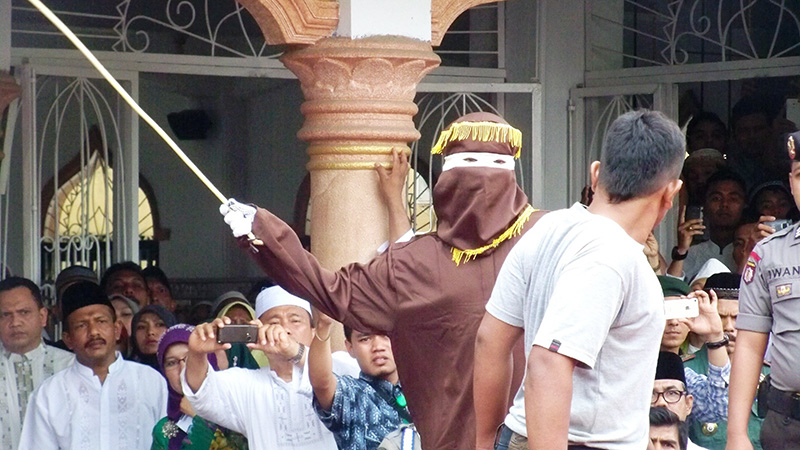
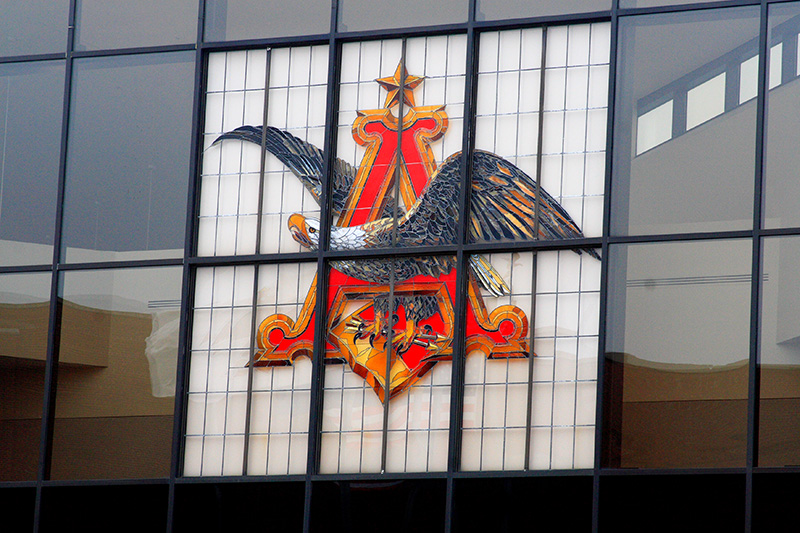
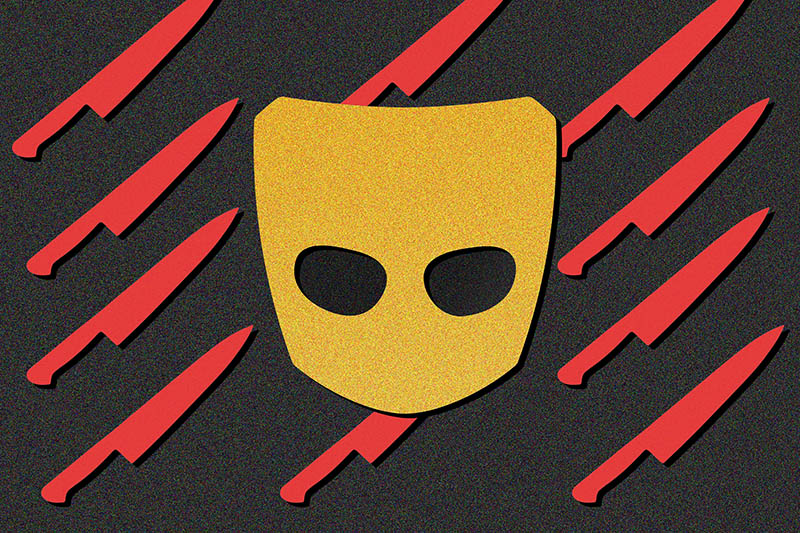















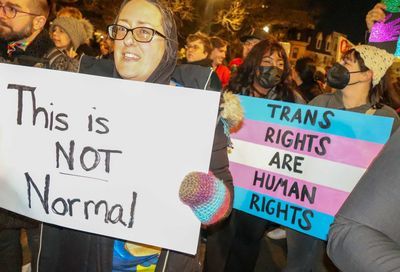
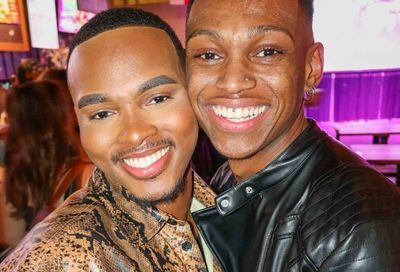
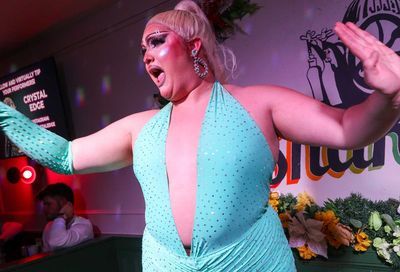
You must be logged in to post a comment.